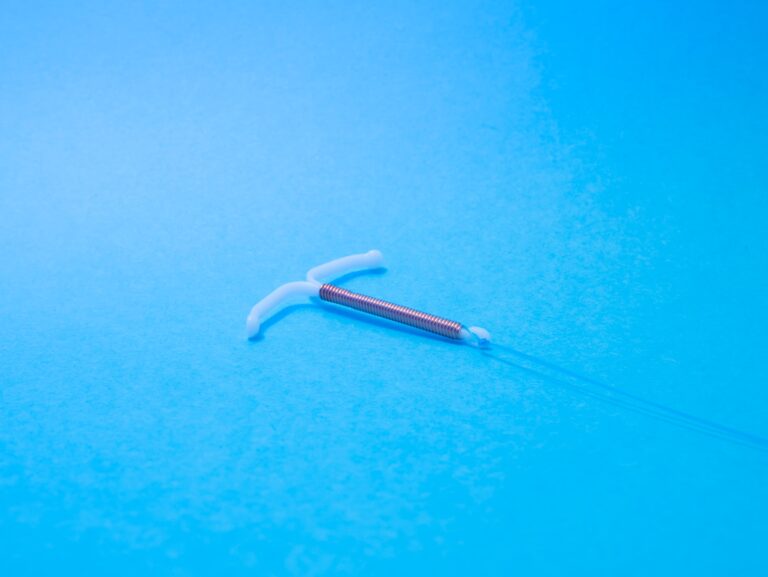Having an IUD is a great birth control option for many women. However, some people experience pain during sex with their IUD. This is not normal and should be checked out by a doctor.
Pain and bleeding after sex may be a sign that your IUD has become displaced. A doctor will be able to check your IUD and shorten the strings to alleviate discomfort.
Causes
If you’re experiencing pain after sex with an IUD, it’s important to get it checked out by your doctor. You should never ignore pelvic pain, especially when it is paired with bleeding and other symptoms that could indicate a serious issue.
Pain after sex can be caused by a number of things, including: lack of foreplay and/or lubrication, infection, or vaginismus (a condition where the muscles around the vulva are in spasm), which can make sex painful or even impossible. Pain can also be a sign of an abnormality, such as fibroids (growths on the uterus that are benign but cause pain and other issues).
You should know that it’s normal to experience some slight cramping and spotting after you get your IUD inserted. However, if your pain and discomfort become constant, it’s time to call your doctor for an appointment.
The most common reason for pelvic pain is that your IUD has migrated. Your OB/GYN can check the position of your IUD using an ultrasound, so it’s important to let them know when you’re experiencing pain so they can take a look. It may not be possible to reposition your IUD, but your doctor will work with you to find the best option. You can also use a water-based lubricant to decrease friction and ease your pain, as well as taking over-the-counter pain relievers such as acetaminophen or ibuprofen.
Treatment
A gynecologist can adjust the position of an IUD to reduce pain after sex. Some women also benefit from using a vaginal lubricant during sexual activity to reduce friction and discomfort. The lubricant can be a water-based one, such as KY Jelly, or an oil-based one, like spermicidal cream, which can be bought at most pharmacies.
In addition, over-the-counter pain relievers, such as ibuprofen or naproxen, can help with cramping. Peace Nwegbo-Banks, MD, an obstetrician and gynecologist at Serenity Women’s Health & Med Spa in Houston, TX, suggests taking the medication ahead of time to prepare for cramping during an IUD insertion. “If IUD patients come to their appointment hungover and dehydrated, they are more likely to experience pain,” she says.
Some IUD users have to deal with pelvic inflammatory disease (PID), which is usually sexually transmitted. PID can cause pain after sex, as well as abdominal, back, and pelvic pain. If you have PID, your gynecologist will prescribe antibiotics and may recommend surgery to remove your IUD.
Some men report that they can feel the strings of an IUD during sex, but this is not usually a problem for most women. If you or your partner can’t stand the strings, your gynecologist can trim them to make it easier for you both to enjoy sex without feeling the IUD.
Prevention
Pain and spotting after sex with an IUD is not normal and could be a sign of something serious, like perforation of the uterus or expulsion of the device. A woman who experiences pain after sex should see her doctor right away to have the device checked out.
A person can take OTC ibuprofen or other nonsteroidal anti-inflammatory drugs to help relieve the pain and spotting after sex with IUD. Some people also find that using a water-based lubricant, rather than an oil-based lubricant, helps to reduce cramping and discomfort after sex with an IUD.
Cramping after sex with an IUD is similar to menstrual cramping, and some people find that taking fish oil or other vitamin supplements can help with both the sex and period pain. A doctor can provide advice on safe dosages for these supplements.
Women who use an IUD can expect a heavier or longer period during the first 3 to 6 months after it is put in. They may also get spotting or bleeding between periods.
Although it is rare, an IUD can become dislodged from its place in the uterus or the cervix. A doctor or nurse can check to make sure the IUD is still in place. If it isn’t, the person should continue to use an extra method of birth control, such as condoms, until it is back in place.
Over-the-Counter Remedies
Some people experience cramping and backaches after a doctor inserts or removes an intrauterine device (IUD). This pain may last several days or weeks and should gradually improve. If the discomfort is severe, a person should seek medical attention. If the symptoms persist, it could be a sign of a serious complication, such as an infection or a uterine perforation.
IUD insertion is usually painful because the cervix needs to open up to allow the device through. During the procedure, a doctor inserts a small instrument called a speculum into the vagina and may inject a numbing solution near the cervix. After the numbing is complete, the doctor inserts the IUD through the cervix into the uterus.
After an IUD is inserted, many women have period-type cramps. Over-the-counter pain medication can help ease the cramping. Some gynecologists advise their patients to take non-steroidal anti-inflammatory drugs (NSAIDs), such as ibuprofen or naproxen, during the first few months of IUD use to reduce symptoms. NSAIDs are prostaglandin synthetase inhibitors, which decrease the production of endometrial prostaglandins, which are known to cause heavy bleeding and dysmenorrhea.
If sex with an IUD causes pain, using a water-based lubricant can reduce friction and discomfort. Changing sexual positions can also alleviate pain. For example, some people find that sex with the IUD on top is more comfortable than with it on bottom.
See Also:



